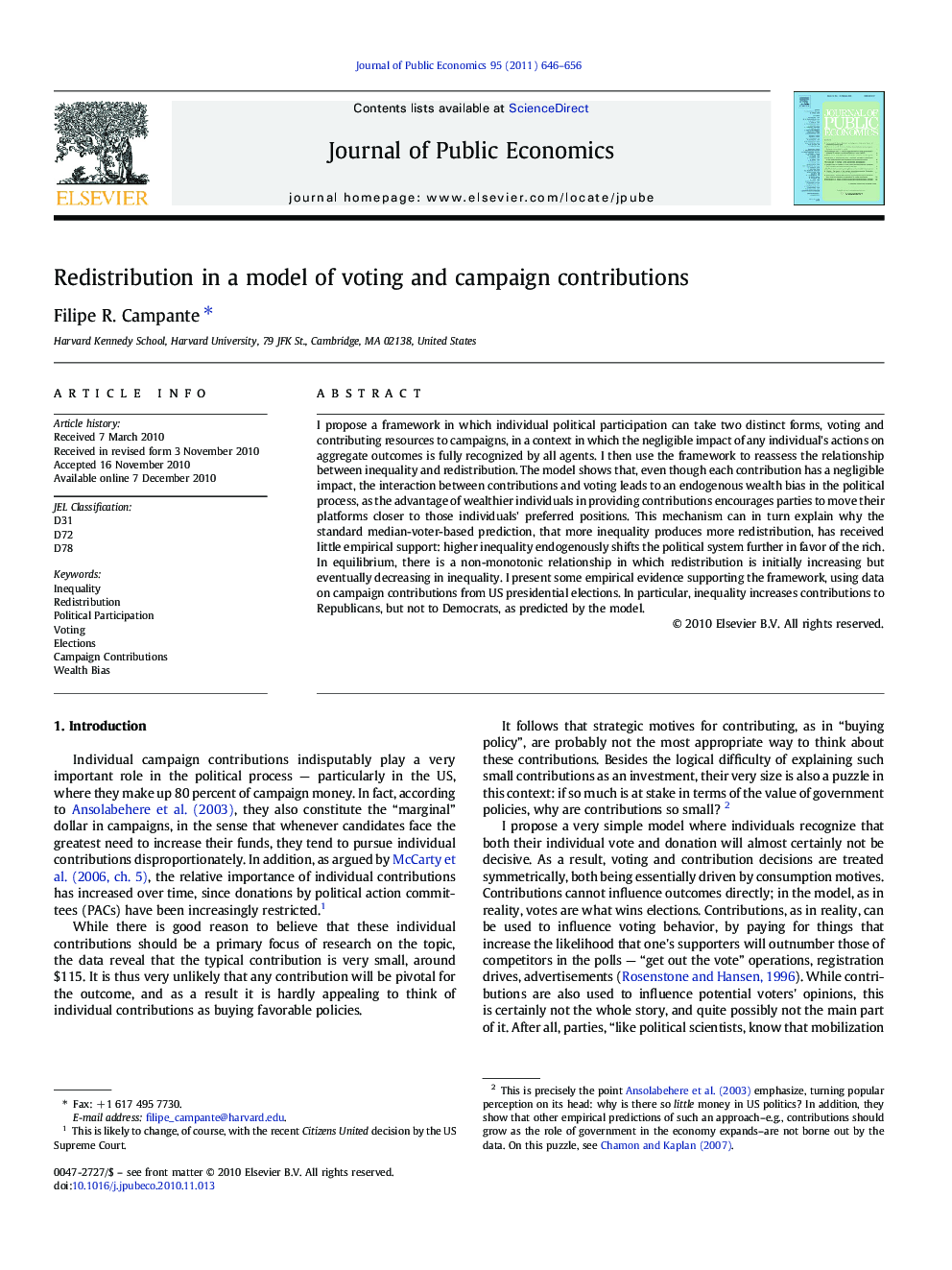| Article ID | Journal | Published Year | Pages | File Type |
|---|---|---|---|---|
| 969359 | Journal of Public Economics | 2011 | 11 Pages |
I propose a framework in which individual political participation can take two distinct forms, voting and contributing resources to campaigns, in a context in which the negligible impact of any individual's actions on aggregate outcomes is fully recognized by all agents. I then use the framework to reassess the relationship between inequality and redistribution. The model shows that, even though each contribution has a negligible impact, the interaction between contributions and voting leads to an endogenous wealth bias in the political process, as the advantage of wealthier individuals in providing contributions encourages parties to move their platforms closer to those individuals' preferred positions. This mechanism can in turn explain why the standard median-voter-based prediction, that more inequality produces more redistribution, has received little empirical support: higher inequality endogenously shifts the political system further in favor of the rich. In equilibrium, there is a non-monotonic relationship in which redistribution is initially increasing but eventually decreasing in inequality. I present some empirical evidence supporting the framework, using data on campaign contributions from US presidential elections. In particular, inequality increases contributions to Republicans, but not to Democrats, as predicted by the model.
Research highlights► Tractable model of elections with voting and individual campaign contributions. ► Small individual contributions still generate wealth bias in the political system. ► Greater inequality increases the wealth bias. ► This bias can explain why more inequality need not lead to more redistribution. ► Inequality increases (reduces) contributions to anti- (pro-) redistribution party.
